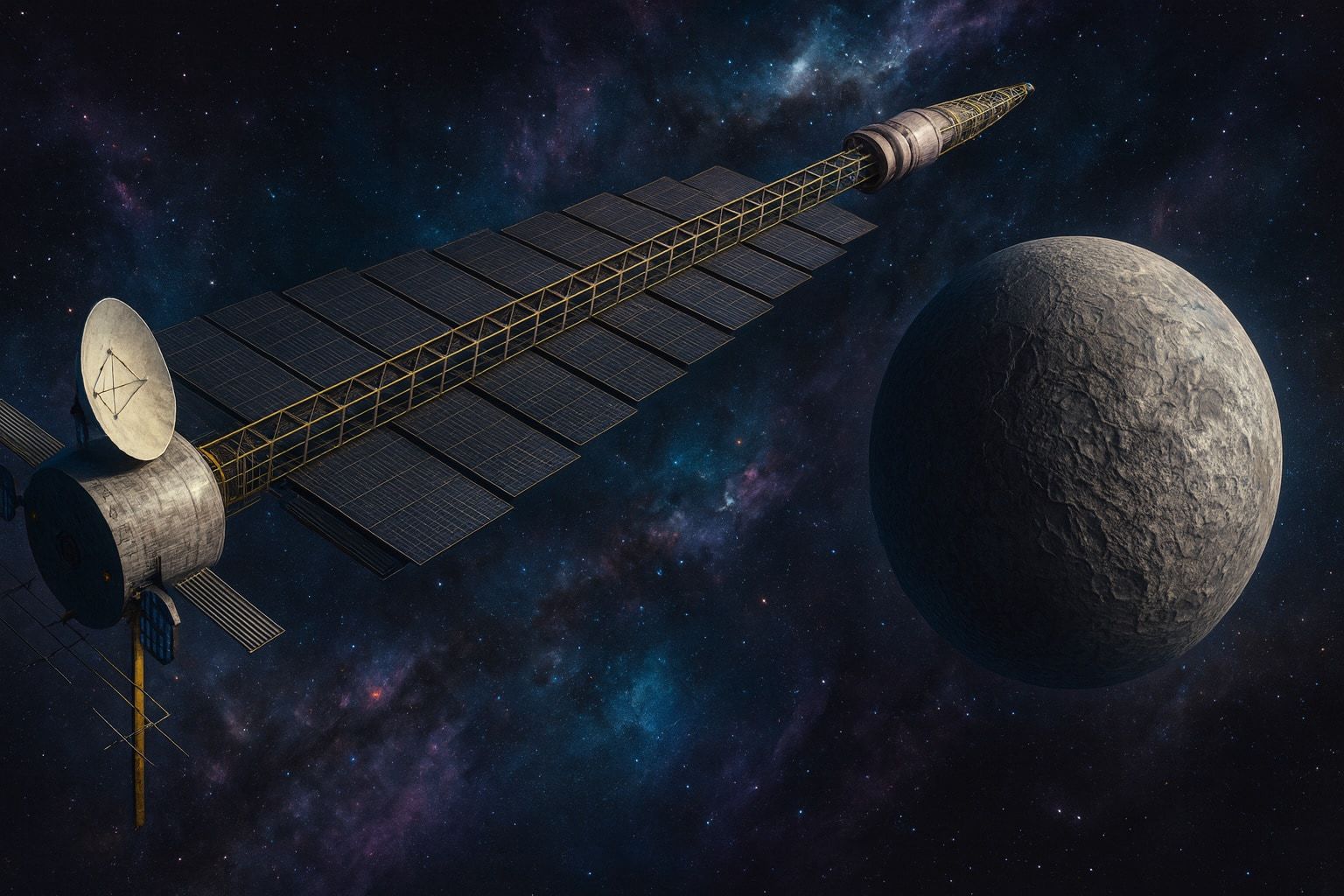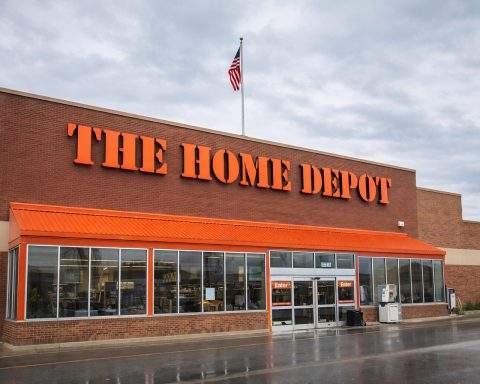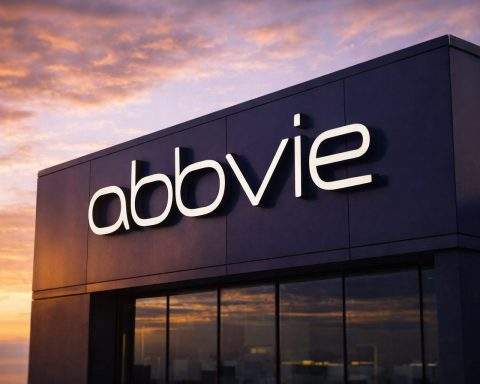Amazon founder Jeff Bezos is stepping back into an operational role as co-CEO of Project Prometheus, a new AI startup with $6.2 billion in funding that aims to transform manufacturing for computers, cars, and spacecraft. Here’s what we know so far and why it matters.
Jeff Bezos is back in the day-to-day game
For the first time since stepping down as CEO of Amazon in July 2021, Jeff Bezos is preparing to run a company again — and it’s not Amazon, Blue Origin, or any existing arm of his empire.
According to a report in The New York Times, relayed by Reuters and multiple tech and financial outlets, Bezos will serve as co-chief executive officer of a new artificial intelligence startup called Project Prometheus.1
The company is focused on applying advanced AI to engineering and manufacturing for computers, automobiles, and spacecraft, placing it squarely at the intersection of software, hardware, and the booming industrial automation sector.1
While Bezos has spent recent years investing in AI ventures and pushing forward his space company Blue Origin, this marks his first formal operating role since he left Amazon’s top job four years ago.1
What is Project Prometheus?
Public details are still limited, but the broad contours of Project Prometheus are becoming clear from today’s reporting:
- Mission: Build AI systems to improve and accelerate manufacturing and engineering processes across sectors including computing hardware, automotive, and aerospace.1
- Funding: The startup has reportedly raised about $6.2 billion in early-stage funding, with a significant portion coming from Bezos himself. That level of capital instantly makes Project Prometheus one of the best-financed AI startups in the world.1
- Team: The company has already hired nearly 100 employees, including researchers and engineers from leading AI labs such as OpenAI, DeepMind, and Meta’s AI group.1
The choice of name is notable. In mythology, Prometheus stole fire from the gods and gave it to humanity — a metaphor often used in discussions of powerful new technologies. For an AI company targeting the physical world of factories, supply chains, and spacecraft, it’s a statement of ambition as much as branding.
Why Bezos’ return to an operational role matters
From boardrooms to factory floors
Since 2021, Bezos has primarily operated as an owner, investor, and high-level strategist:
- At Blue Origin, he’s the founder and financial engine behind a company that this year notched a major milestone with the first orbital launch — and later a successful booster landing — of its heavy-lift New Glenn rocket.1
- He has backed multiple AI ventures, including Perplexity AI, a fast-growing AI-powered search engine, and Figure AI, a humanoid robotics startup building general-purpose robots for industrial and logistics work.2
- His investment firm, Bezos Expeditions, also led a major funding round in Toloka, a human-in-the-loop data and AI evaluation company that works with major tech players.3
But in all those cases, Bezos has been a backer or founder, not a day-to-day operator. Reports on Project Prometheus make clear this is different: he will be co-CEO, sharing responsibility for the company’s strategy, culture, hiring, and execution.1
That shift suggests three big things:
- AI in the physical economy is now a top priority. Bezos has long argued that the next wave of technological transformation would involve bringing digital intelligence into the physical world — logistics networks, factories, energy, and space. Project Prometheus appears designed to sit exactly there.
- He sees a window of opportunity. With generative AI reshaping software and services, the race is now on to dominate “applied AI” for real-world industries. Bezos may believe traditional players in manufacturing and industrial software are moving too slowly.
- He’s willing to compete head-on with today’s AI giants. The new startup enters a market dominated by OpenAI (backed by Microsoft), Google, Meta, and a growing pack of frontier-model rivals — yet it arrives with more capital and more high-profile leadership than almost any other new entrant.1
Meet Vik Bajaj, Bezos’ co-CEO
Bezos won’t be running Project Prometheus alone. His co-chief executive is Vik Bajaj, a scientist-executive with deep roots in both advanced research and Alphabet’s moonshot projects.
According to Reuters and other outlets:
- Bajaj is a physicist and chemist by training.
- He worked closely with Google co-founder Sergey Brin at Google X, the company’s experimental “moonshot factory” responsible for projects like self-driving cars and delivery drones.
- He later helped lead Verily, the health-tech company spun out of Google X.1
That background lines up neatly with Project Prometheus’ ambitions. Building AI for complex physical systems — cars, chips, rockets, factories — requires a blend of deep scientific expertise, massive-scale computing, and experience turning research prototypes into products that can survive harsh, real-world conditions.
With Bezos bringing decades of operational experience from Amazon and Blue Origin, and Bajaj bringing moonshot R&D and health-tech chops, the leadership duo signals that this is not a small research lab or a quick flip startup. It’s intended to be a long-term platform company.
How Project Prometheus could reshape manufacturing
Public reports so far describe the company’s mission in broad strokes: use AI to improve manufacturing and engineering for computers, autos, and spacecraft.1
That still leaves a lot of open questions. Based on the industries named and the talent it’s recruiting, here are the most plausible focus areas experts are watching for:
- AI-driven design and simulation
- Using large AI models to design components (chips, motors, structural parts) that are lighter, cheaper, or more efficient.
- Running billions of simulations in software before anything is built, shortening product cycles and reducing physical prototyping.
- Smart factories and robotics
- Applying AI to optimize production lines: predicting machine failures, dynamically routing work, and adjusting parameters in real time.
- Integrating AI with industrial robots and autonomous vehicles inside factories and warehouses.
- Supply-chain and logistics optimization
- Leveraging rich data and predictive models to prevent bottlenecks, adjust to material shortages, and reduce waste — an area where Bezos’ Amazon background is especially relevant.
- Aerospace and space manufacturing
- Given the explicit focus on spacecraft and Bezos’ involvement in Blue Origin, analysts speculate Project Prometheus could build tools that help design and manufacture rocket components, satellites, and potentially space-based infrastructure.1
None of this is confirmed by the company — it has not publicly commented — but these are the kinds of problems where a heavily funded AI lab with strong hardware and aerospace ties could have an outsized impact.
How does this fit into the wider AI arms race?
Project Prometheus arrives in a very different landscape than the one Bezos dominated when he drove Amazon’s early cloud and e-commerce expansions.
Today’s AI race is defined by:
- Frontier model labs such as OpenAI, Google DeepMind, Anthropic, and xAI, all building increasingly powerful foundation models.
- Hyperscale cloud providers (AWS, Azure, Google Cloud) that sell compute and managed AI services to enterprises.
- Specialist vertical players applying AI to medicine, finance, law, and manufacturing.
Reports make clear that Project Prometheus belongs in that third category — a vertical AI company for the physical economy — but with a war chest more typical of a frontier-model lab.1
That combination could make it a formidable competitor to existing industrial AI efforts from companies like Siemens, GE, and major automakers, while also giving it the resources to license or train its own large models if needed.
Meanwhile, Amazon itself is pushing hard into AI with its AWS cloud services and its investments in generative AI startups. Project Prometheus is reported as a separate, Bezos-backed startup, not an Amazon subsidiary, but its work is likely to intersect with — and possibly sit on top of — cloud platforms including AWS.1
What this means for Blue Origin and Bezos’ broader vision
One especially intriguing angle is how Project Prometheus might connect to Bezos’ long-standing vision of moving heavy industry off Earth.
Blue Origin has recently hit key milestones, including:
- The first successful orbital launch of its New Glenn rocket in January 2025.
- A successful booster landing and its first NASA mission to Mars’ orbit in November 2025, signaling growing maturity of its launch system.4
If Project Prometheus can make manufacturing more efficient — whether for rockets, satellites, or future space infrastructure — it could become a critical enabler for that broader vision. Some reporting already hints that the startup’s work could support Blue Origin and other large industrial clients by reducing costs and speeding development cycles.5
In other words, Bezos’ new AI company may not just be another tech venture. It could become a missing link between his terrestrial businesses and his long-term aspirations in space.
Key facts at a glance
- Company name: Project Prometheus
- Type: Artificial intelligence startup focused on engineering and manufacturing
- Leadership: Jeff Bezos (co-CEO, co-founder), Vik Bajaj (co-CEO, co-founder)1
- Funding: Approx. $6.2 billion, partly funded by Bezos himself
- Stage: Early-stage startup but already among the best-financed AI companies globally1
- Team size: Around 100 employees, including alumni of OpenAI, DeepMind, and Meta’s AI group
- Focus industries: Computers and semiconductors, automotive, aerospace and spacecraft manufacturing
- Status of confirmation: Based on sources cited by The New York Times; Reuters notes it has not independently verified the report, and Bezos’ representatives have not publicly commented yet.
FAQs: Jeff Bezos and Project Prometheus
Is Project Prometheus part of Amazon or AWS?
Current reporting describes Project Prometheus as a separate AI startup that Jeff Bezos is personally helping to fund and lead as co-CEO. There’s no indication so far that it is a subsidiary of Amazon or AWS, although it may well run on cloud infrastructure like AWS for its compute needs.
Why is Bezos choosing an AI manufacturing startup instead of another consumer-tech company?
Bezos has long been interested in the “heavy” side of technology — logistics, space, energy, and infrastructure. Manufacturing for computers, cars, and spacecraft sits at the crossroads of those interests, and AI is increasingly seen as the key to making such systems cheaper, faster, and more reliable. Project Prometheus appears designed to capitalize on that strategic intersection.
When will Project Prometheus launch products?
No timelines have been announced. The company is still in a relatively early phase, focused on hiring and building core technology. With $6.2 billion in backing, it has the runway to invest heavily in R&D before shipping commercial products at scale.
What does this mean for the broader AI market?
The entrance of a Bezos-led, heavily funded AI startup into industrial and manufacturing AI is likely to intensify competition, push incumbents to move faster, and attract more capital to “real-world” AI applications beyond chatbots and content generation. It’s another sign that the next phase of the AI boom will be fought in factories, supply chains, and spaceports, not just in web browsers.
As of today, November 17, 2025, Project Prometheus is still more vision than product. But with Jeff Bezos stepping back into a CEO role, billions in funding already secured, and a handpicked team of top AI researchers and engineers, few doubt that this is a venture the rest of the industry will be watching very closely.






